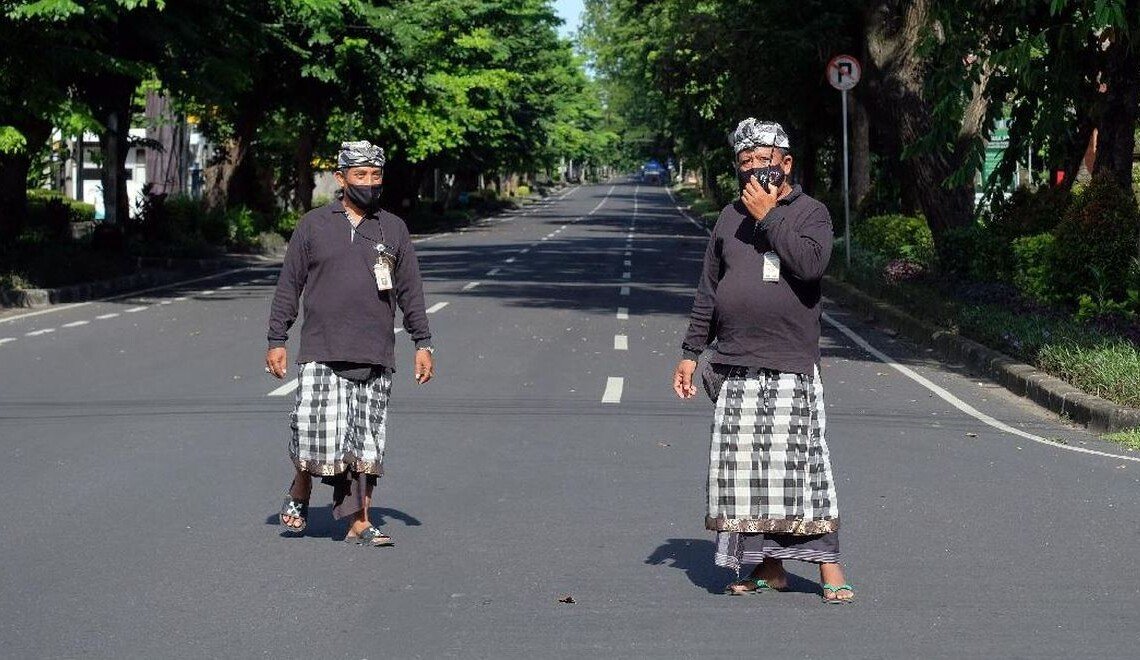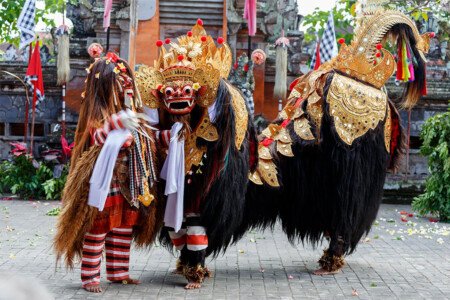Bali’s Nyepi, or Day of Silence, is a profound cultural and spiritual observance that offers a unique glimpse into the island’s rich Hindu traditions. Unlike any other celebration, Nyepi transforms Bali into a sanctuary of stillness and reflection. This article delves into the essence of Nyepi, its rituals, significance, and what visitors can expect during this extraordinary day.
🌿 Understanding Nyepi: Bali’s Day of Silence
Nyepi marks the Balinese New Year according to the Saka calendar, which typically falls in March or April. The day is dedicated to self-reflection, meditation, and spiritual renewal. From 6:00 AM to 6:00 AM the following day, the island observes complete silence. This period is governed by the “Catur Brata Penyepian,” which includes:(
- Amati Geni: No fire or light, including electricity.
- Amati Karya: No work or physical activity.
- Amati Lelunganan: No travel or leaving one’s home.
- Amati Lelanguan: No entertainment or self-indulgence.
These restrictions apply to both locals and visitors, ensuring a collective experience of tranquility and introspection.
🎭 The Eve of Nyepi: Ogoh-Ogoh Parades
The day before Nyepi is marked by the vibrant Ogoh-Ogoh parade. Communities construct large effigies made of bamboo and paper, representing evil spirits or mythological beings. These effigies are paraded through the streets accompanied by traditional gamelan music, chanting, and noise-making to drive away malevolent forces. The culmination of the parade involves the ceremonial burning of the Ogoh-Ogoh, symbolizing the purification of the island.
🌊 The Melasti Ritual: Purification by the Sea
Several days before Nyepi, the Melasti ritual takes place. This purification ceremony involves Balinese Hindus gathering at sea temples to cleanse sacred objects and themselves. Devotees dress in white attire and carry offerings to the sea, seeking blessings and spiritual renewal. The Melasti ritual underscores the Balinese belief in the harmonious relationship between humans, nature, and the divine.
🛑 Nyepi Day: A Sacred Pause
On Nyepi Day, Bali transforms into a sanctuary of silence. The usually bustling streets become eerily quiet, with no vehicles, pedestrians, or noise. Businesses, shops, and restaurants remain closed, and even the Ngurah Rai International Airport halts operations for 24 hours. Hotels and accommodations are prepared to host guests indoors, offering activities like meditation sessions, spa treatments, and yoga classes to help visitors embrace the spirit of the day.
🌱 The Significance of Silence
The silence observed during Nyepi is not merely the absence of noise but a profound spiritual practice. It provides an opportunity for introspection, self-discipline, and reconnection with the divine. By abstaining from daily distractions, individuals can achieve a state of inner peace and clarity, setting the tone for the year ahead.
🌅 The Day After Nyepi: Ngembak Geni
The day following Nyepi is known as Ngembak Geni, a day of renewal and social reconnection. Families and communities come together to seek forgiveness, strengthen bonds, and celebrate the new year. Traditions such as the Omed-Omedan, a playful kissing ritual among young people, are observed in certain areas like Sesetan village. This day marks the transition from introspection to communal harmony.
🧳 Tips for Visitors During Nyepi
If you find yourself in Bali during Nyepi, here are some tips to ensure a respectful and enriching experience:
- Plan Ahead: Stock up on essentials like snacks, water, and entertainment before Nyepi, as all shops and restaurants will be closed.
- Stay Indoors: Respect the restrictions by remaining inside your accommodation.
- Embrace the Silence: Use this time for personal reflection, meditation, or journaling.
- Participate Respectfully: If you’re invited to observe the Ogoh-Ogoh parade or Melasti ritual, do so with reverence and understanding.
- Understand the Rules: Be aware that Pecalang (traditional security officers) patrol the streets to ensure compliance with Nyepi regulations.
🌺 Conclusion
Nyepi is more than just a day of silence; it is a profound expression of Bali’s spiritual and cultural identity. For visitors, it offers a unique opportunity to experience the island’s traditions in their most authentic form. By observing Nyepi, both locals and visitors contribute to the collective harmony and spiritual renewal of Bali.










Join The Discussion